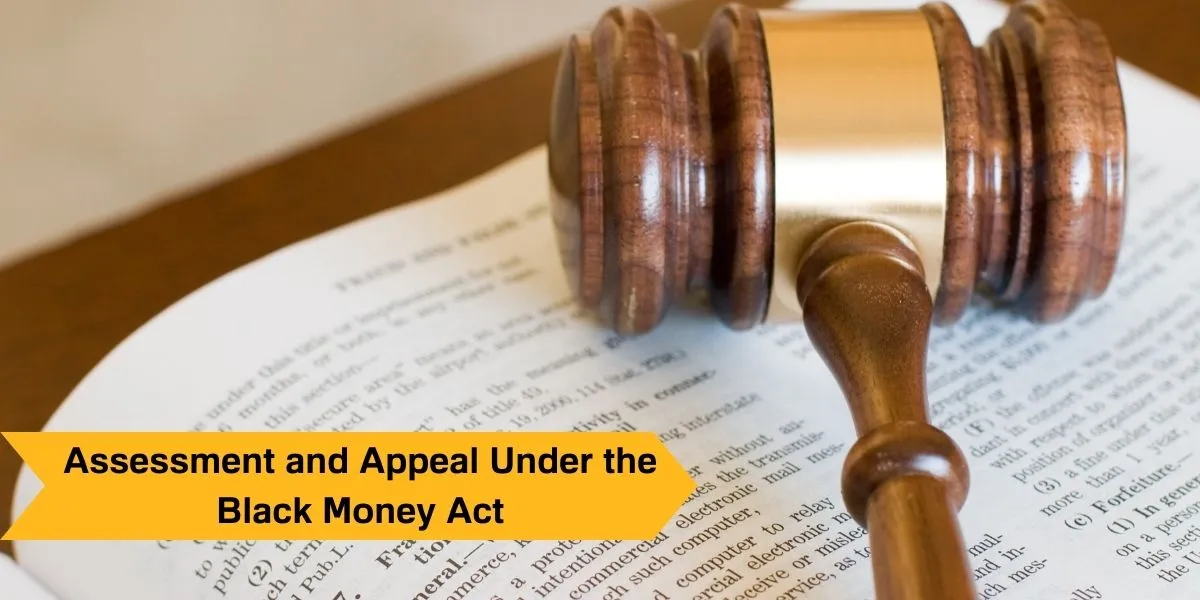


Taxes form an important component of the Indian Government’s revenue that is used to create the necessary infrastructure and other facilities to develop and run the country. However, tax evasion is still a challenge that the government faces. Certain taxpayers employ strategies and questionable tactics to bend the taxation laws or outright evade taxes. Further, many times, this money is parked in foreign countries in bank accounts or buying assets that remain undisclosed. To curb these practices, the government inserted provisions under the income tax law while also enacting the Black Money (Undisclosed Foreign Income and Assets) and Imposition of Tax Act, 2015, also commonly known as the Black Money Act. Let’s understand how the assessment under Black Money Act works.
Section 10 of the Black Money Act governs the assessments and reassessments by the respective authorities. The Assessing Officer (AO) may serve a notice for assessment or reassessment requiring the assessee to produce the books of accounts, documents or any other evidence as the AO may require. Further, the AO may also issue further notices requiring the production of any further documents or accounts. The notice may be issued upon receipt of information from an income tax authority under the Income Tax Act or any other authority under any other law for the time being in force or upon receiving any information by the concerned AO.
Further, the AO is empowered to make any inquiry as he considers necessary for obtaining all the information in relation to the undisclosed foreign income or assets of any person. After considering the accounts, documents and evidence and the relevant material in his possession, the AO shall pass an order in writing assessing or reassessing the undisclosed foreign income and assets and determine the amount payable by the assessee.
In case the assessee fails to comply with the notice as issued above, then the AO may, after providing an opportunity of being heard, make the assessment or reassessment of the undisclosed foreign income and asset to the best of his judgement (best judgement assessment) and determine the amount payable by the assessee.
The authorities can conduct a direct assessment under Black Money Act of any person on whose behalf or for the benefit of whose person the undisclosed income from a source outside India is receivable or undisclosed asset situated outside India is held. Further, the authorities are also allowed to directly make recovery from such person of the tax or any other sum payable in relation to such income or asset.
The assessment, summons, notice or any other proceeding taken, issued or made or purported to be taken, issued or made under any of the provisions of this act shall not be invalid merely due to any mistake, defect or omission in such assessment, summons, notice or any other proceeding if it is in substance and is in conformity with the intent and provisions of this act.
The Black Money Act gives the assessee an opportunity to make an appeal in case he is not satisfied with the proceedings or the order. Accordingly, under the following situations, the assessee may prefer an appeal to the Commissioner (Appeals):
The appeal under Black Money Act to the Commissioner (Appeals) should be presented within 30 days from:
However, if you fail to file the appeal within the specified period, then the Commissioner (Appeals) may admit the appeal after the specified period if:
The Commissioner (Appeals) shall hear and determine the appeal as per the provisions of this act and pass such order as he deems fit. However, an order enhancing the assessment or penalty should not be passed unless the assessee has been given an opportunity of being heard.
Not disclosing foreign income or assets can lead to levy of significant penalties under Black Money Act by the assessing authorities. As per section 41 of the Black Money Act, in case tax has been computed under section 10 in relation to undisclosed foreign asset or income, then a penalty equal to 3 times the amount of tax shall be levied in addition to the tax liability.
Further, Section 42 of the Black Money Act also plays an important role. As per this section, if a Resident (other than not ordinarily resident in India as per Section 6(6) of the Income Tax Act, 1961) who is required to furnish income tax return holds any asset located outside India as a beneficial owner or was a beneficiary of any asset located outside India or had any income from a source located outside India fails to furnish the return, then the AO may levy a penalty of Rs. 10 lakhs.
Following were the complete details relating to the assessment under the Black Money Act. In case you need any assistance in relation to assessment and appeal under the Black Money Act, feel free to contact the ASC Group.
























































Leave a Reply
Your email address will not be published. Required fields are marked *